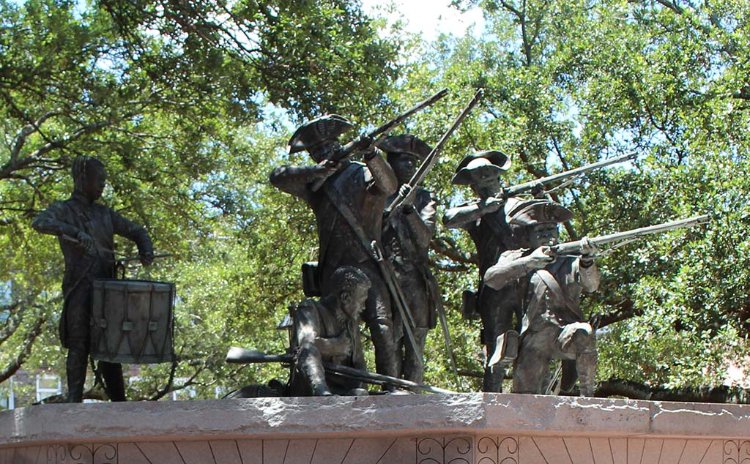Story
Connecting Haiti and America: The Legacy of Savannah
The year 1779 echoes with the clash of arms, the thunder of cannon fire, and the cries of men locked in a desperate struggle for freedom. While the American Revolution often focuses on battles like Saratoga and Yorktown, a pivotal, yet frequently overlooked, chapter unfolded in Savannah, Georgia. Here, amidst the siege, a remarkable story of courage and international solidarity emerged, shaping the nascent bond between Haiti and America: the story of the Haitian soldiers who fought for American independence.
Our website, “Haitian Born, American Made,” celebrates the rich tapestry of Haitian contributions to American culture. The Battle of Savannah, a bloody and ultimately unsuccessful siege, serves as a powerful origin point for this connection. It’s a story not just of military strategy and battlefield heroics, but of shared ideals and the forging of a transatlantic alliance in the crucible of war.
Imagine Savannah in the autumn of 1779. The city, under British control, was a vital strategic point. American and French forces laid siege, determined to wrest it from the Crown. Among the allied troops were over 500 soldiers from the French colony of Saint-Domingue (modern-day Haiti). These men, many of them free men of color, had journeyed thousands of miles to fight for a cause they believed in: liberty.
These weren’t just any soldiers. They were members of the Volontaires de couleur (Colored Volunteers), recruited primarily from the free Black population of Saint-Domingue. They were skilled fighters, hardened by the challenges of life in the Caribbean, and led by men like the Chevalier de Saint-Georges, a brilliant Black officer of mixed heritage. Their presence in Savannah wasn’t a mere historical footnote; it was a testament to the growing awareness of the revolutionary spirit that was sweeping the Atlantic world.
Why did these Haitians, these men of color, choose to risk their lives for the American cause? The answer lies in the shared language of freedom. The rhetoric of liberty and self-determination, so central to the American Revolution, resonated deeply with the aspirations of the free Black population in Saint-Domingue. They understood the inherent hypocrisy of fighting for freedom while slavery continued to exist, yet they also recognized the potential for a different future, a future where the principles of equality might one day extend to all.
The siege of Savannah was a brutal affair. The Allied forces, despite their valiant efforts, were ultimately repulsed with heavy losses. The Haitian soldiers fought with distinction, earning the respect of their American and French comrades. They faced the same dangers, endured the same hardships, and shed their blood for the same ideals. Their bravery at Savannah wasn’t just about military prowess; it was a declaration, a powerful statement that the fight for freedom was a universal one, transcending race and national boundaries.
The Haitian contribution to the Savannah campaign, though not resulting in victory, planted a seed. It fostered a sense of shared struggle and mutual respect between Haitians and Americans. This connection, forged in the fires of battle, would prove crucial in the years to come. When the Haitian Revolution erupted just a few years later, the echoes of Savannah reverberated across the Atlantic. The Haitian people, inspired by the American ideals of liberty, fought for their own independence, ultimately establishing the first free Black republic in the world.
The story of the Haitian soldiers at Savannah is more than just a historical account; it’s a symbol of the intertwined destinies of Haiti and the United States. It reminds us that the pursuit of freedom is a universal aspiration, one that unites people across cultures and continents. It’s a story that deserves to be told, a story that illuminates the deep roots of the Haitian-American connection.
This shared history, beginning on the battlefields of Savannah, continues to shape the relationship between our two nations. “Haitian Born, American Made” celebrates this enduring bond, recognizing the countless contributions of Haitian immigrants to American society. From the battlefields of the Revolution to the vibrant cultural landscape of today, the Haitian presence has enriched and strengthened the American experience. The courage and sacrifice of the Haitian soldiers at Savannah serve as a powerful reminder of the shared values that unite us, a legacy of freedom that continues to inspire. This is where the story of “Haitian Born, American Made” begins, a testament to the enduring power of a connection forged in the pursuit of liberty.

